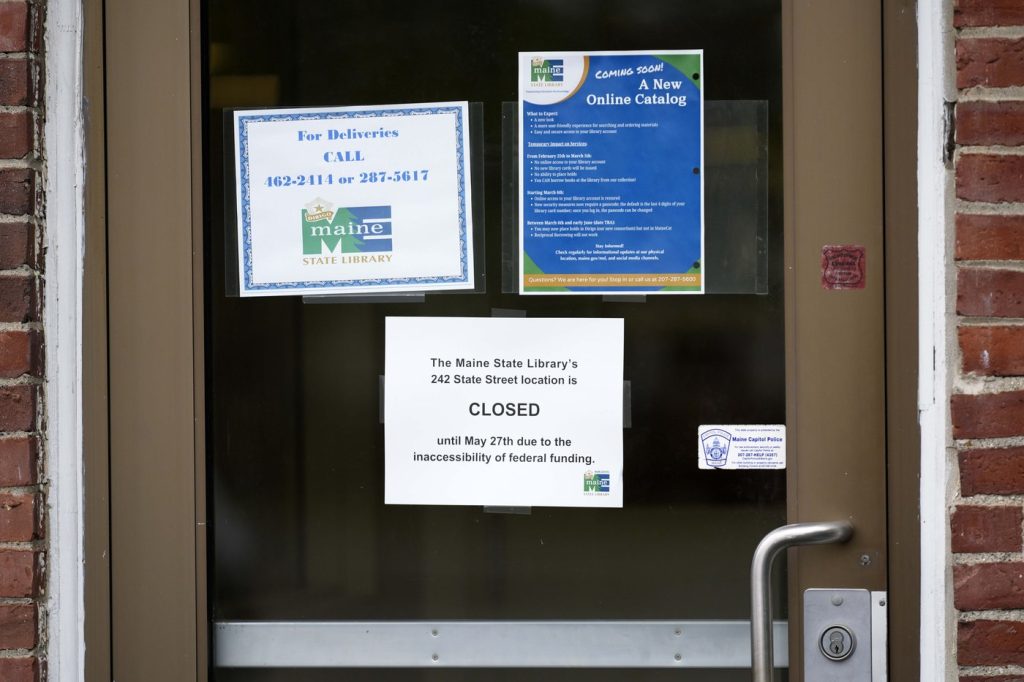Libraries across the United States are facing significant challenges due to federal funding cuts, particularly in e-books, audiobooks, and loan programs. These financial difficulties have emerged following the Trump administration's suspension of millions of dollars in federal grants aimed at supporting libraries through the Institute of Museum and Library Services (IMLS). While federal judges have issued temporary orders to block any further actions from the Trump administration, the immediate impact of these funding cuts has forced numerous libraries to reevaluate their budgets and explore alternative funding methods.
For instance, the state of Maine has laid off 20% of its library staff and has temporarily closed the state library after not receiving its expected annual funding. Similarly, libraries in Mississippi have halted their e-book services indefinitely, while South Dakota's state library has suspended its interlibrary loan program. These e-book and audiobook services, which have seen a surge in demand since the onset of the COVID-19 pandemic, are particularly at risk due to budget constraints.
Cindy Hohl, the president of the American Library Association, expressed concerns regarding the unaffordability of digital resources for many libraries. "The cost of providing digital sources is too expensive for most libraries," she stated, underlining the growing need for these offerings.
The funding crisis intensified after President Trump issued an executive order on March 14 to dismantle the IMLS, subsequently allowing the dismissal of nearly all its employees. The repercussions of this decision became evident when, a month later, the Maine State Library had to issue layoff notices to employees funded through IMLS grants.
Spencer Davis, a library generalist at the Maine State Library, remarked on the unexpected nature of the funding cuts, stating, "It came as quite a surprise to all of us." In addition, California, Washington, and Connecticut were the only states officially notified about the cancellation of their remaining funding for the year, prompting them to file formal objections with the IMLS.
California State Library Director Rebecca Wendt noted the lack of communication regarding the funding termination, saying, "We are mystified." The IMLS did not respond to requests for comment regarding these cuts.
Most libraries rely heavily on state and federal funding for their operations, especially rural libraries, which typically require federal grants more than their urban counterparts. In recent years, the demand for e-books and audiobooks has surged, with over 660 million people globally borrowing digital content in 2023, a significant increase from 19% in 2022, according to OverDrive, a major distributor of digital library content.
In Mississippi, the statewide library system that funded popular programs, such as Hoopla for e-book and audiobook access, has been forced to suspend these services amidst the funding freeze. Erin Busbea, director of the Columbus-Lowndes Public Library System, reported that frustrated patrons have been inquiring about why they can no longer access their books.
The funding freeze followed the administrative leave of roughly 70 IMLS staff members in March. This has led attorneys general in 21 states, alongside the American Library Association, to file lawsuits against the Trump administration in a bid to stop the disenfranchisement of the agency.
The IMLS operates with an annual budget of less than $300 million, allocating a relatively small portion of this to state libraries nationwide. For example, California's state library was informed that 20%, or $3 million, of its $15 million grant was terminated. Wendt noted that smaller library systems are unable to cover the costs associated with e-books independently.
In South Dakota, the halt of the interlibrary loan program further emphasizes the widespread repercussions of the funding cuts. The IMLS, established in 1996 through bipartisan support, also funds a national library training initiative named after former First Lady Laura Bush, which aims to recruit and train librarians from underrepresented backgrounds.
As Liz Doucett, director of the Curtis Memorial Library in Brunswick, Maine, articulated, "Library funding is never robust. It's always a point of discussion." This ongoing funding crisis adds to existing anxieties surrounding library services and their availability to the public.











